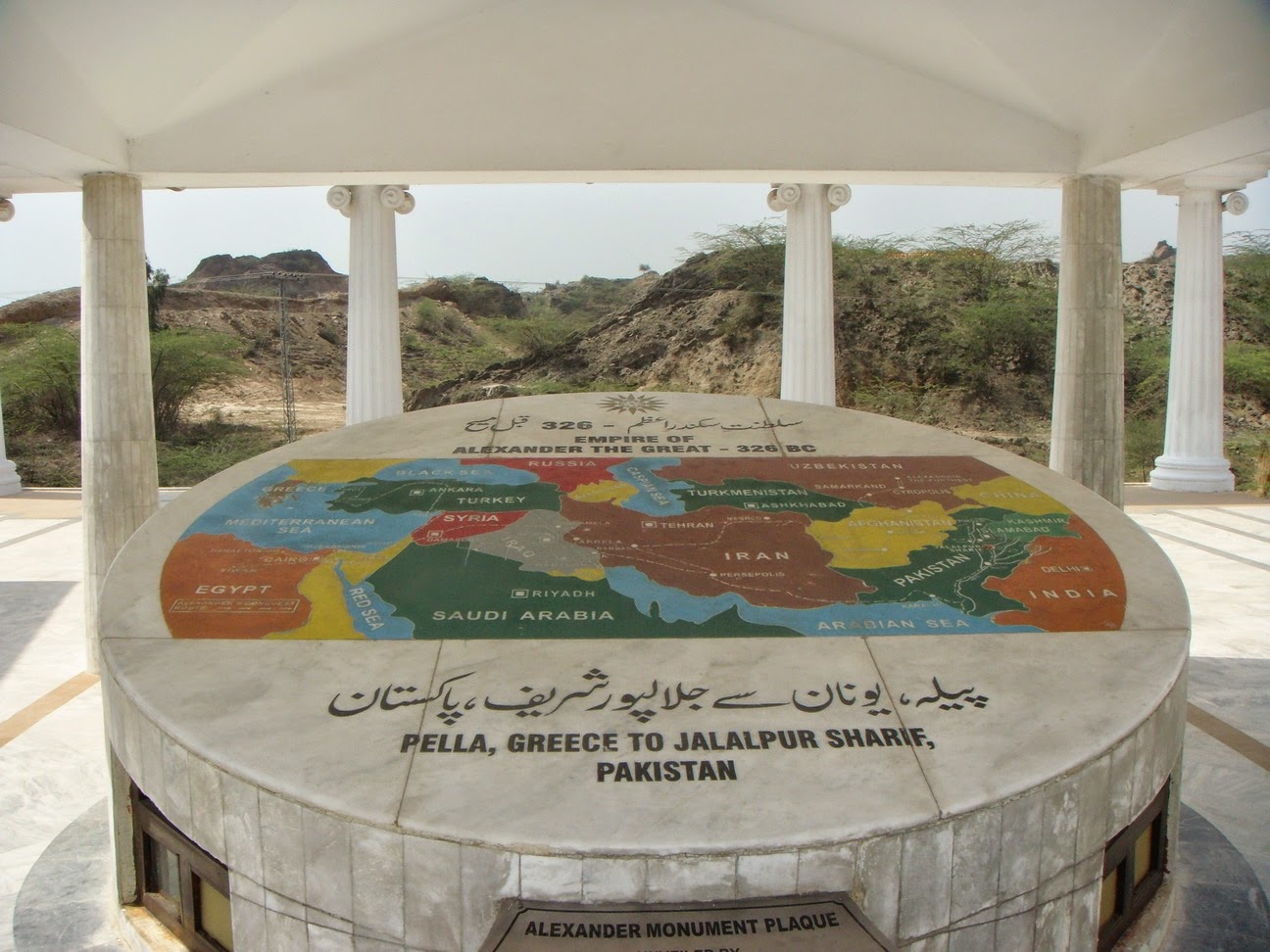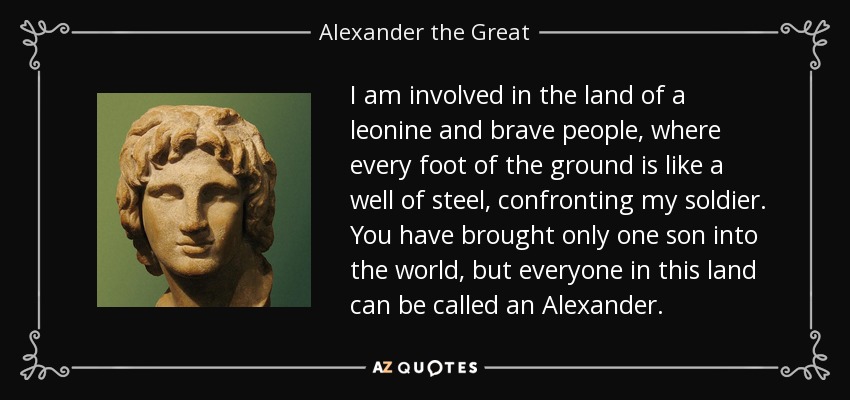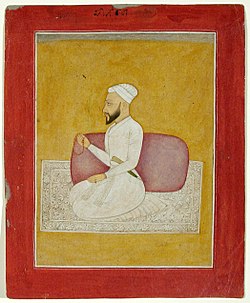Hamza913
ELITE MEMBER

- Joined
- Sep 15, 2015
- Messages
- 8,953
- Reaction score
- 11
- Country
- Location
We've got one for Pashtuns, so I am making one for Punjabis.
I will start off with some historical Punjabi figures:
Porus

A Punjabi king who fought bravely against Alexander of Macedon. Defeating him was one of Alexander's most difficult conquests, and out of respect for Porus he employed him as a satrapy over the area. The difficulty of the battle also seems to have caused the Macedonian soldiersoldier's reluctancy to fight any further, to the point where they almost started a mutiny. This resulted in Alexander being forced to end his campaign of expansion.
https://www.britannica.com/biography/Porus
Kautilya
A famous philosopher from Taxila who tutored Chandragupta Maurya, and held a key position in the Mauryan Empire. He is often compared to Aristotle and Plato.
https://www.britannica.com/biography/Kautilya
Sarang Khan
He was a powerful ruler of Nothern Punjab who fought alongside Babur during his conquests of Hindustan. He obtained the title of Sultan for his efforts. When Sher Shah Suri usurped Babur's son Humayun, Sarang fought against him bravely, and Sher Shah Suri was never able to subdue his people even after skinning Sarang himself.
https://en.m.wikipedia.org/wiki/Sultan_Sarang_Khan
Wazir Khan

A Punjabi who acted as Shah Jahan's physician. He was also a Mughal noble and chief Qazi of Lahore for quite some time during Mughal rule. He founded Wazirabad and Wazir Khan Masjid is named after him.
https://en.m.wikipedia.org/wiki/Wazir_Khan_(Lahore)
Shahbaz Khan
A Punjabi who fought as a general under Akbar. He participated in some of the most difficult battles during Akbar's reign, and annexed large amounts of Hindustan. He was also a highly religious Muslim, keeping a long beard and regularly praying.
https://en.m.wikipedia.org/wiki/Shahbaz_Khan_Kamboh
Abdullah Bhatti
He rebelled against Mughal emeperor Akbar, and is often compared to Robin Hood due to his social banditry. Many folklore tales speak highly of his deeds. When he was hung, his last words that were uttered were "No honourable son of Punjab will ever sell the soil of Punjab".
https://en.m.wikipedia.org/wiki/Dulla_Bhatti
Fateh Muhammad
Worked as a commander in Aurangzeb's army. He was also the father of Hyder Ali, who was the father of Tipu Sultan.
https://en.m.wikipedia.org/wiki/Fath_Muhammad
Mukarrab Khan

A powerful chieftain of nothern Punjab who fought alongside Nader Shah during his conquests of the Mughal Empire. He was awarded the title of Nawab for his efforts and was allowed to retain control of his kingdom. He then expanded it to include much of nothern Pakistan before being defeated by the Sikh Empire. Even then, his people continued to rebel against the Sikhs.
http://firdosh101.blogspot.co.uk/2009/05/history-of-gakhars.html?m=1
Allama Iqbal

An Urdu/Farsi poet as well as a philosopher who is also considered the spiritual father of Pakistan.
http://historypak.com/allama-muhammad-iqbal-1877-1938/
Rehmat Ali

One of Pakistan's founding fathers. He came up with the name of Pakistan and was the author of the Pakistan declaration.
http://historypak.com/choudhry-rahmat-ali-1895-1951/
Faiz Ahmed Faiz

One of Urdu's most celebrated poets. He won numerous awards for his poetry, such as the Lenin Peace Prize and Nishan-e-Imtiaz. He was also nominated for a Nobel Prize in Literature.
https://en.m.wikipedia.org/wiki/Faiz_Ahmad_Faiz
Shabbir Sharif

The most decorated soldier to ever serve the Pakistani army. During 1971, he and his men destroyed several Hindustani tanks and kept two Hindustani battalions at bay by killing over 40 of their troops and capturing almost 30 of them as POW's. He also defeated a Hindustani company commander who challenged him to hand-to-hand combat. He won both Nishan-e-Haider and Sitara-e-Jurat for his efforts.
http://www.pakarmymuseum.com/exhibits/second-lieutenant-shabbir-sharif/
Tikka Khan

Fought against Erwin Rommel in WW2 as part of Britain's Africa campaign. He also served in the Pakistani army, participating in the Battle of Chawinda (2nd largest tank battle in history) and lead the army to great victories in the Rann of Kutch. He eventually became a general, and crushed Bengali and Baluchi insurgencies with a heavy hand. He's also my PDF profile picture.
https://en.m.wikipedia.org/wiki/Tikka_Khan
I will start off with some historical Punjabi figures:
Porus
A Punjabi king who fought bravely against Alexander of Macedon. Defeating him was one of Alexander's most difficult conquests, and out of respect for Porus he employed him as a satrapy over the area. The difficulty of the battle also seems to have caused the Macedonian soldiersoldier's reluctancy to fight any further, to the point where they almost started a mutiny. This resulted in Alexander being forced to end his campaign of expansion.
https://www.britannica.com/biography/Porus
Kautilya
A famous philosopher from Taxila who tutored Chandragupta Maurya, and held a key position in the Mauryan Empire. He is often compared to Aristotle and Plato.
https://www.britannica.com/biography/Kautilya
Sarang Khan
He was a powerful ruler of Nothern Punjab who fought alongside Babur during his conquests of Hindustan. He obtained the title of Sultan for his efforts. When Sher Shah Suri usurped Babur's son Humayun, Sarang fought against him bravely, and Sher Shah Suri was never able to subdue his people even after skinning Sarang himself.
https://en.m.wikipedia.org/wiki/Sultan_Sarang_Khan
Wazir Khan
A Punjabi who acted as Shah Jahan's physician. He was also a Mughal noble and chief Qazi of Lahore for quite some time during Mughal rule. He founded Wazirabad and Wazir Khan Masjid is named after him.
https://en.m.wikipedia.org/wiki/Wazir_Khan_(Lahore)
Shahbaz Khan
A Punjabi who fought as a general under Akbar. He participated in some of the most difficult battles during Akbar's reign, and annexed large amounts of Hindustan. He was also a highly religious Muslim, keeping a long beard and regularly praying.
https://en.m.wikipedia.org/wiki/Shahbaz_Khan_Kamboh
Abdullah Bhatti
He rebelled against Mughal emeperor Akbar, and is often compared to Robin Hood due to his social banditry. Many folklore tales speak highly of his deeds. When he was hung, his last words that were uttered were "No honourable son of Punjab will ever sell the soil of Punjab".
https://en.m.wikipedia.org/wiki/Dulla_Bhatti
Fateh Muhammad
Worked as a commander in Aurangzeb's army. He was also the father of Hyder Ali, who was the father of Tipu Sultan.
https://en.m.wikipedia.org/wiki/Fath_Muhammad
Mukarrab Khan
A powerful chieftain of nothern Punjab who fought alongside Nader Shah during his conquests of the Mughal Empire. He was awarded the title of Nawab for his efforts and was allowed to retain control of his kingdom. He then expanded it to include much of nothern Pakistan before being defeated by the Sikh Empire. Even then, his people continued to rebel against the Sikhs.
http://firdosh101.blogspot.co.uk/2009/05/history-of-gakhars.html?m=1
Allama Iqbal
An Urdu/Farsi poet as well as a philosopher who is also considered the spiritual father of Pakistan.
http://historypak.com/allama-muhammad-iqbal-1877-1938/
Rehmat Ali
One of Pakistan's founding fathers. He came up with the name of Pakistan and was the author of the Pakistan declaration.
http://historypak.com/choudhry-rahmat-ali-1895-1951/
Faiz Ahmed Faiz
One of Urdu's most celebrated poets. He won numerous awards for his poetry, such as the Lenin Peace Prize and Nishan-e-Imtiaz. He was also nominated for a Nobel Prize in Literature.
https://en.m.wikipedia.org/wiki/Faiz_Ahmad_Faiz
Shabbir Sharif
The most decorated soldier to ever serve the Pakistani army. During 1971, he and his men destroyed several Hindustani tanks and kept two Hindustani battalions at bay by killing over 40 of their troops and capturing almost 30 of them as POW's. He also defeated a Hindustani company commander who challenged him to hand-to-hand combat. He won both Nishan-e-Haider and Sitara-e-Jurat for his efforts.
http://www.pakarmymuseum.com/exhibits/second-lieutenant-shabbir-sharif/
Tikka Khan
Fought against Erwin Rommel in WW2 as part of Britain's Africa campaign. He also served in the Pakistani army, participating in the Battle of Chawinda (2nd largest tank battle in history) and lead the army to great victories in the Rann of Kutch. He eventually became a general, and crushed Bengali and Baluchi insurgencies with a heavy hand. He's also my PDF profile picture.
https://en.m.wikipedia.org/wiki/Tikka_Khan
Last edited:




